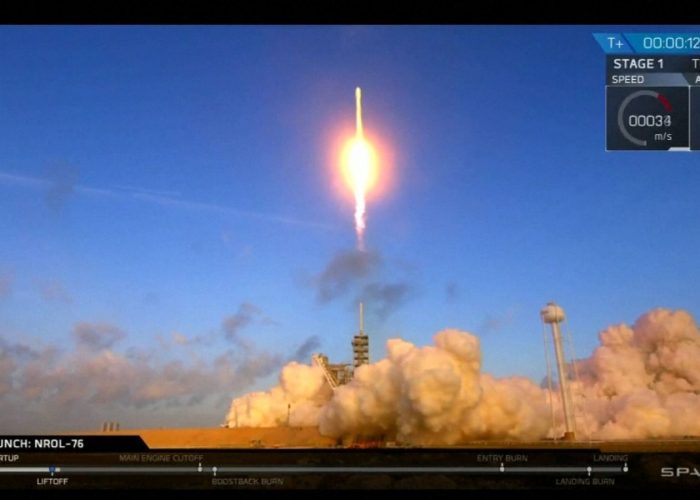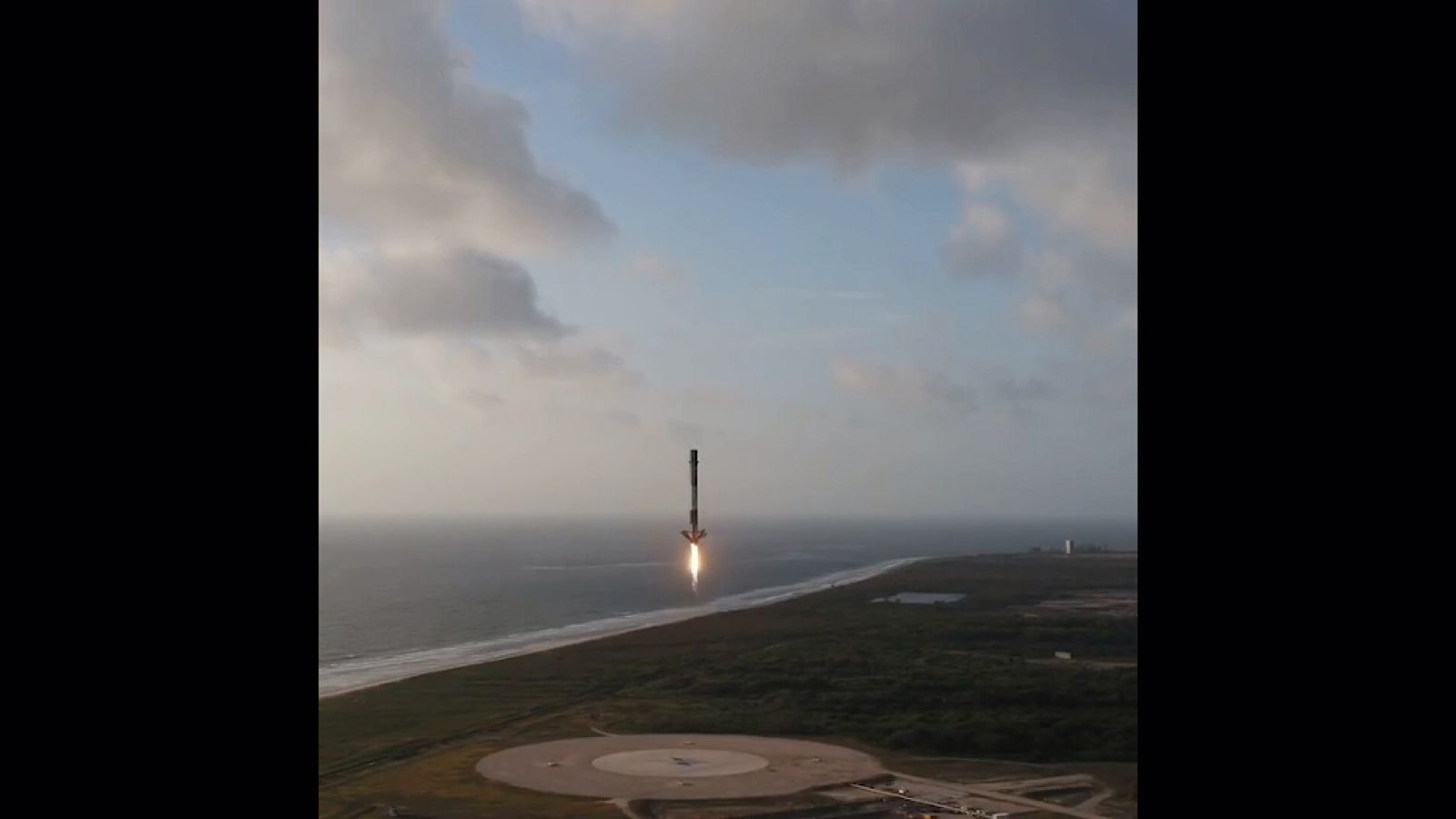



The 23-storey rocket blasts off in Florida, delivering the satellite to orbit before landing back on Earth after a few minutes.
A TOP-secret spy satellite has been launched by Elon Musk’s SpaceX company, with the rocket booster landing itself just nine minutes later.
The mission – for the US military’s National Reconnaissance Office – blasted off from Cape Canaveral Air Force Station in Florida at 7.15am local time.
Sonic booms rattled the area as the 23-storey rocket blasted off.
The Falcon 9 rocket returned to the base to cheers from mission control, landing upright in the fourth successful solid ground landing for the company.

SpaceX has already successfully landed multiple rockets on sea platforms and aims to reuse them to cut launch costs.
Its first recycled rocket flew last month.
Details of what the government satellite will be used for are classified.
The launch was put back a day after a problem with a sensor saw the first attempt abandoned seconds before liftoff.

High altitude wind shear was also near the limit for Monday’s launch, with Musk tweeting it was “98.6% of the theoretical load limit” but “not a showstopper”.
Billionaire Musk managed to win the contract instead of the United Launch Alliance – a partnership between Boeing and Lockheed Martin that previously had a monopoly.
Space X has also won two more contracts from the US Air Force to send up GPS satellites in 2018 an 2019.

The launch was the fifth of more than 20 the firm has in the pipeline this year. Its total backlog is more than 70 missions, worth about $10bn.
The company is also working on a capsule that could put humans into orbit as early as next year. –news.sky.com
Sorry. No data so far.

